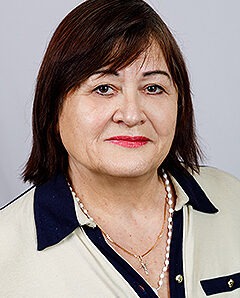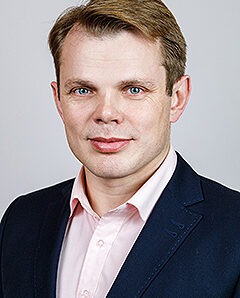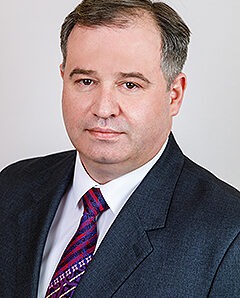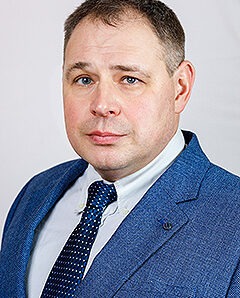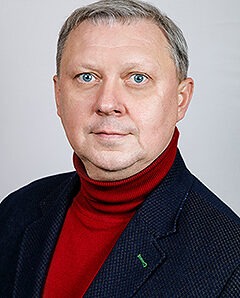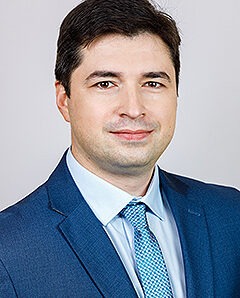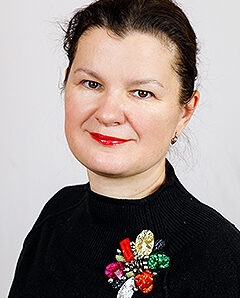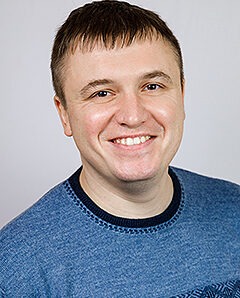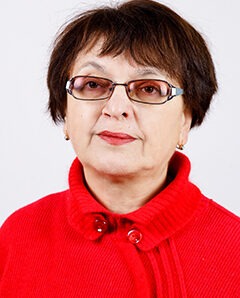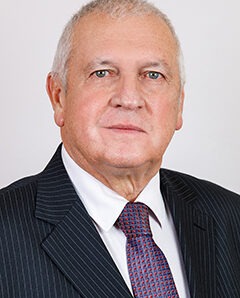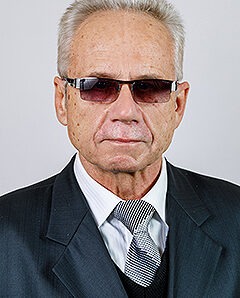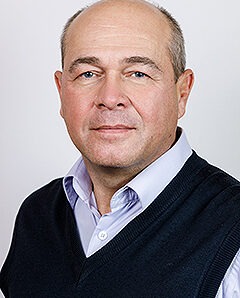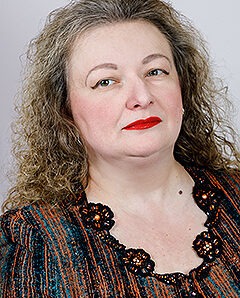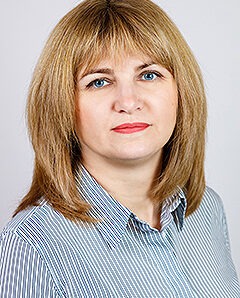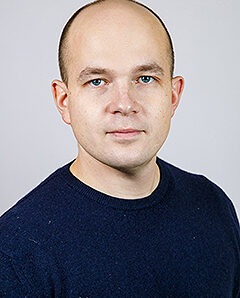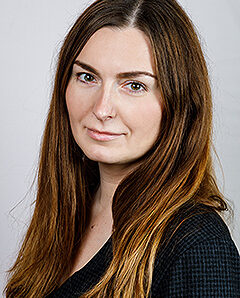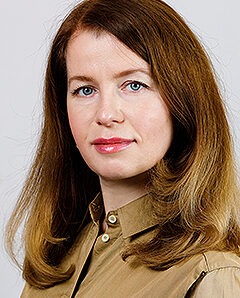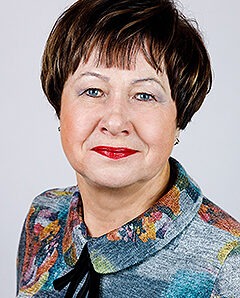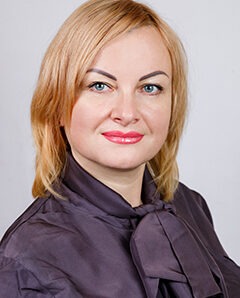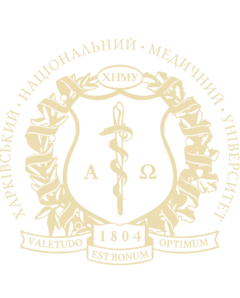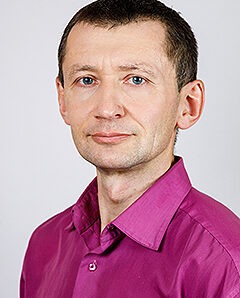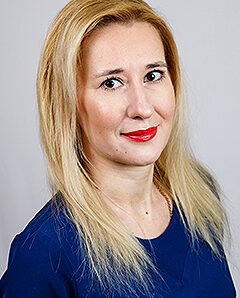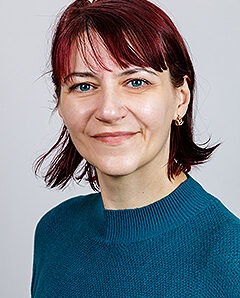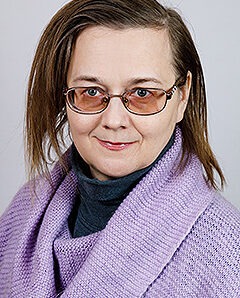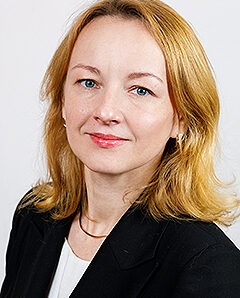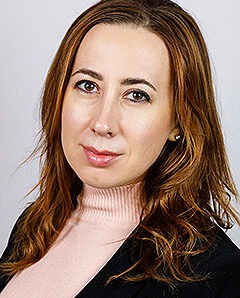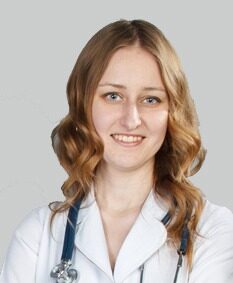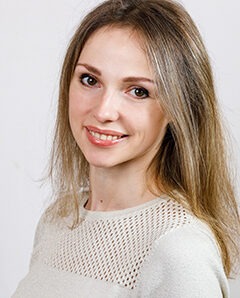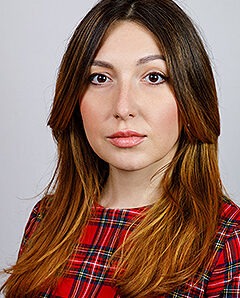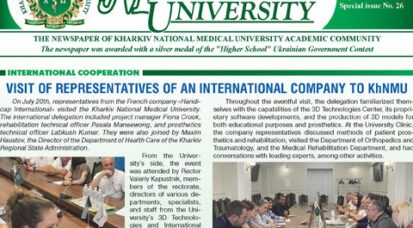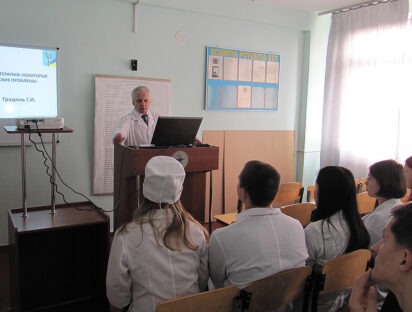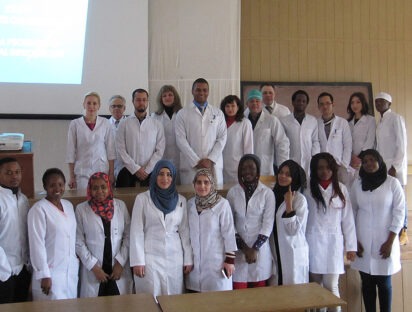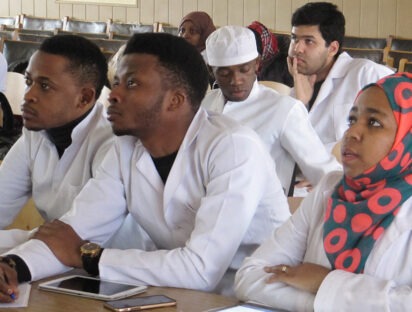About us
The Department of Infectious Diseases, Paediatric Infectious Diseases and Phthisiology was established in 2024 by merging with the Departments of Paediatric Infectious Diseases and Phthisiology. The Department carries out activities in the following areas: educational, scientific, methodological and medical-consultative.
The department trains applicants for higher education of the second (master’s) level of higher education of the 4th, 5th and 6th years of the specialty “Medicine” and “Paediatrics”, the 4th year of the specialty “Dentistry”, as well as bachelors and masters studying in the specialties “Technologies of Medical Diagnostics and Treatment”, “Nursing” and “Public Health”, postgraduate students, interns, and students of advanced training courses.
The scientific work of the department includes research into the diagnosis, prevention, and treatment of HIV infection and AIDS; HCV and HBV infection, HIV/HCV and COVID-19 co-infections, and tuberculosis.
The department participates in international scientific research to improve the diagnostics and therapy of HIV/AIDS, haemorrhagic fevers and COVID-19, and tuberculosis.
The clinical bases of the department are the Regional Children’s Infectious Diseases Clinical Hospital and the Regional Tuberculosis Dispensary No. 1. The department’s staff provides medical and advisory services at all hospital departments and actively participates in clinical and pathoanatomical conferences and the work of the Association of Infectious Diseases Specialists of Ukraine.
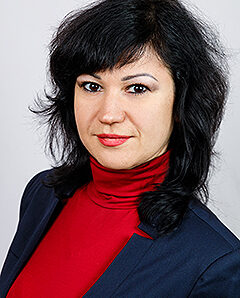
- History of the department
- Educational process
- Scientific work
- Medical work
- International activity
- Postgraduate education
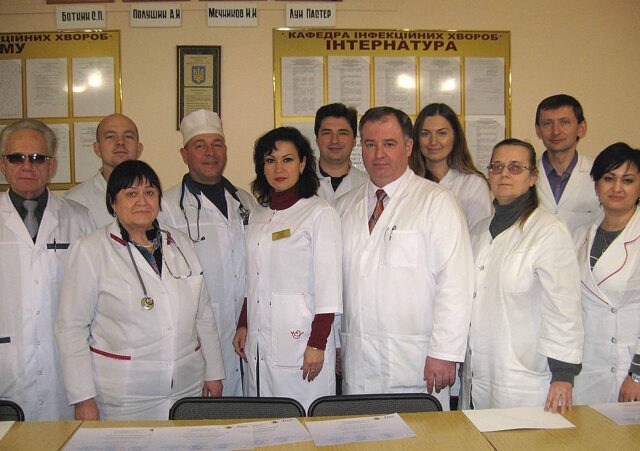
At the Kharkiv Medical Institute, the Department of Partial Epidemiology with the Clinic of Infectious Diseases was established in 1923 on the basis of the Infectious Diseases Department of the Kharkiv Military Hospital No. 4 (14, Heroes of the Heavenly Hundred Square). The Department was headed by Doctor of Medicine, Professor Zinaida Mykolaivna Nesmelova, the first female professor and Doctor of Medicine in Ukraine. In 1926, the Department was relocated to the 3rd Infectious Diseases Department of the 2nd Soviet Hospital, located on Heroes of Kharkov Avenue. Scientific research was conducted in the direction of studying the clinic of typhus, infectious erythema, the clinic and epidemiology of malaria, influenza, epidemic mumps, typhoid fever, etc.
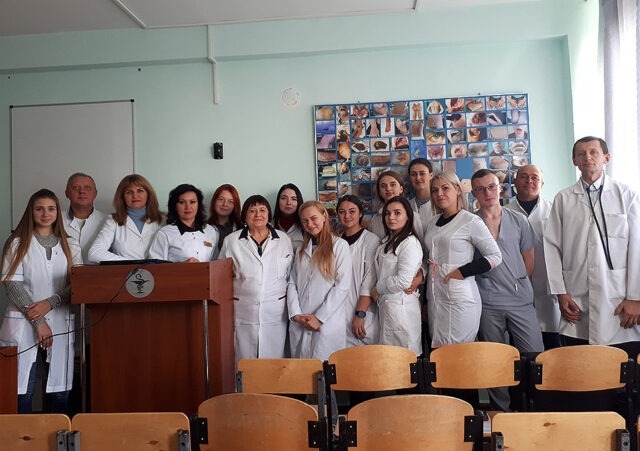
The department conducts classes with applicants of various levels of higher education studying in the educational and professional programs “Medicine”, “Pediatrics”, “Dentistry”, “Laboratory Diagnostics”, “Nursing”, “Public Health” in the field of knowledge “Health Care”.
The department trains students of the second (master’s) level of higher education of the 4th, 5th and 6th years of the specialty “Medicine” and “Pediatrics”, who study the disciplines “Infectious Diseases”, “Phthisiology”, “Children’s Infectious Diseases” and optional educational components. Students of the second (master’s) level of higher education of the 4th year in the specialty “Dentistry” study the educational component “Infectious Diseases”. In the specialty “Technologies of Medical Diagnostics and Treatment”, higher education applicants of the first (bachelor’s) level of higher education of the 2nd, 3rd and 4th years study the discipline (educational component) “Infectious Diseases and Epidemiology with Evaluation of Research Results” and elective courses, and higher education applicants of the second (master’s) level of higher education of the 1st year – the elective educational component “Infection Control”. Second (master’s) level of higher education applicants of the 2nd year of the specialty “Nursing” study the educational component “Organization and Conduct of the Nursing Process in Infectology in Modern Conditions”, and as electives – the disciplines “Infection Control” and “Clinical Nursing in Phthisiology”.
Applicants of the second (master’s) level of higher education of the 1st year of the specialty “Public Health” study the educational component “Socially significant and especially dangerous infectious diseases.”
Subjects are taught in the state language and English.
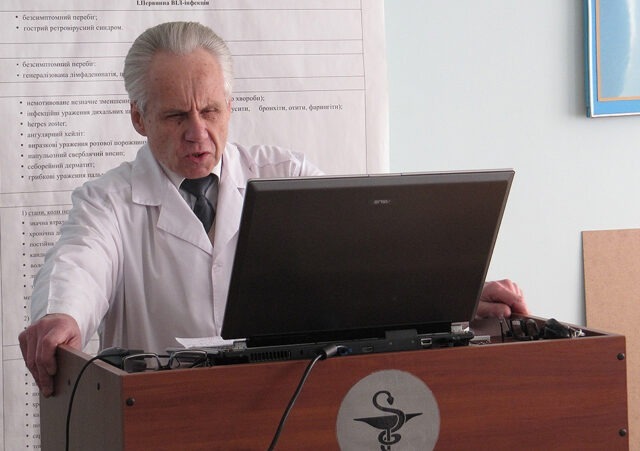
The planned scientific work of the department includes research into the diagnosis, prevention and treatment of HIV infection and AIDS; determining the role of immunological and metabolic disorders in liver fibrogenesis in patients with HCV and HBV infection, HIV/HCV co-infection from the point of view of improving diagnostics and optimizing treatment. The issues of antiviral therapy of viral hepatitis, acute respiratory diseases and herpetic infections are being actively developed. Clinical and metabolic disorders in patients with bacterial and viral meningitis, meningoencephalitis and pathogenetic possibilities of their correction are being studied. The diagnosis and treatment of COVID-19 and its complications are also being studied. The prognostic significance of inflammation markers in assessing the course of the disease and the effectiveness of chemotherapy for pulmonary tuberculosis is also being studied.
Since 2008, the department has participated in several international programs on antiretroviral therapy for HIV infection, diagnostics and treatment of AIDS. Since 2005, the department has been conducting scientific research aimed at studying “little-studied infections”, such as bartonellosis and ehrlichiosis. Acute intestinal infections were studied from the point of view of clinical and microecological aspects of pathogenesis and the development of new methods of pathogenetic therapy based on the use of new probiotics and antiseptics. The Department of Infectious Diseases of KNMU is carrying out state-funded research projects: “A comprehensive system for early diagnosis and monitoring of HIV infection” (2010-2012), “Development of a system for monitoring metabolic disorders in patients with HIV/HCV co-infection on the background of antiviral therapy” (2013-2015), “Early diagnosis and monitoring of central nervous system lesions in HIV-infected patients” (2016-2018).
Since 2016, the training of Doctors of Philosophy in the field of medicine has been introduced.
Since 1991, 19 candidate’s theses have been protected and 3 doctoral theses. Based on the results of scientific research, 3 monographs and 15 textbooks have been published.
The staff of the department has been actively and for a long time cooperating with research institutions in Ukraine and abroad, in particular with the State Institution “Research Institute of Immunology and Microbiology named after I.I. Mechnikov of the Academy of Medical Sciences of Ukraine”, the State Institution “Research Institute of Therapy named after Acad. L.T. Mala of the Academy of Medical Sciences of Ukraine”, the State Institution “Research Institute of Medical Radiology of the Academy of Medical Sciences of Ukraine”, the Kharkiv National University of Radioelectronics, Cukurova University, Adana, Turkey, the Kharkiv Regional Centre for Prevention and Control of AIDS.
The department held international scientific and practical conferences from the state register “General Problems of Parenteral Infections” (2013), “Mechnikov Readings” (2018 – 2025).
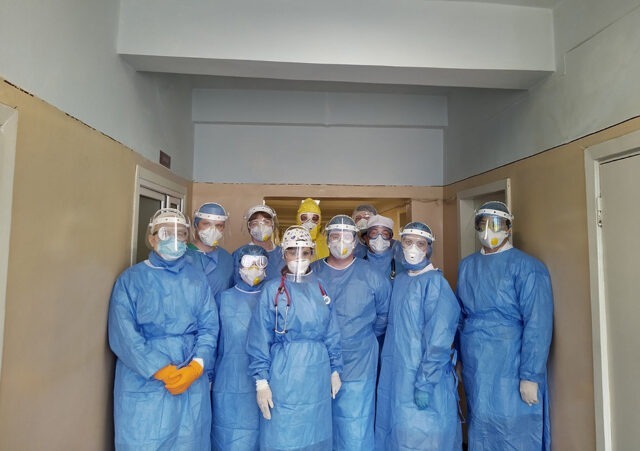
Despite the difficulties of martial law, the department’s staff provides consultations and treatment of patients in the departments of the regional clinical infectious disease hospital, consultations of patients with suspected infectious pathology in the Kharkiv Regional Clinical Hospital, the V.I. Shapoval Regional Clinical Centre for Urology and Nephrology and other medical and preventive institutions in Kharkiv and the region. The department’s staff provides medical and consultative care to patients with the entire spectrum of infectious pathology, but during the pandemic period, mainly to patients with COVID-19. The department performs generally accepted and innovative medical and diagnostic measures: enzyme immunoassay; molecular genetic studies (polymerase chain reaction); HCV genome genotyping; immune status studies; non-invasive diagnostics of morphological changes in the liver; lipid metabolism studies; lipid peroxidation studies; immunohistochemical studies; abdominal ultrasound; remote thermography. The department’s teachers actively consult tuberculosis patients at the Regional Anti-Tuberculosis Dispensary No. 1 and participate in meetings of the Regional Central Committee for Drug-Sensitive and Drug-Resistant Tuberculosis.
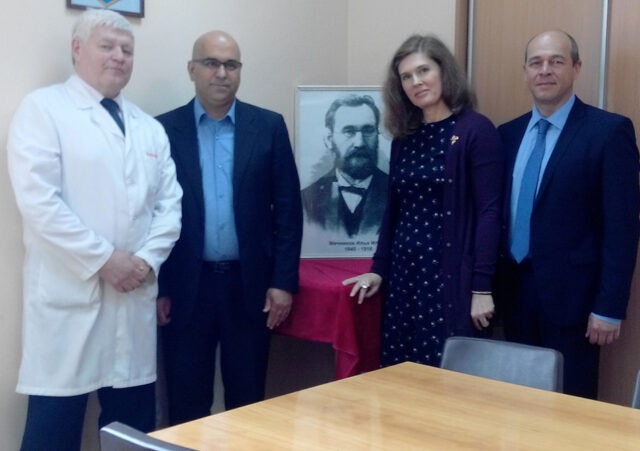
Department employees participate in international projects based on the conclusion of cooperation agreements, namely:
- from with the Center for Molecular Cardiology of the University of Zurich in the field of COVID-19 research;
- with the Bundeswehr Institute of Microbiology (Germany) within the framework of the German Society for International Cooperation (GIZ) program in Ukraine on research into improving diagnostic methods for hantavirus infection.
The staff of the department participate in the work of international associations, in particular, Professor K.V. Yurko is a member of the European Clinical HIV Society (EACS), Professors K.V. Yurko, A.V. Bondarenko, A.V. Sokhan and Associate Professor D.V. Katsapov are membersat the Open Medical Institute, American Austrian Foundation, Salzburg, Austria, Prof. Butov D.O. is a member of the European Respiratory Society (EU), the International Union for Tuberculosis and Lung Diseases (FR) and others. The staff of the department regularly participate in international conferences, webinars and other scientific events.
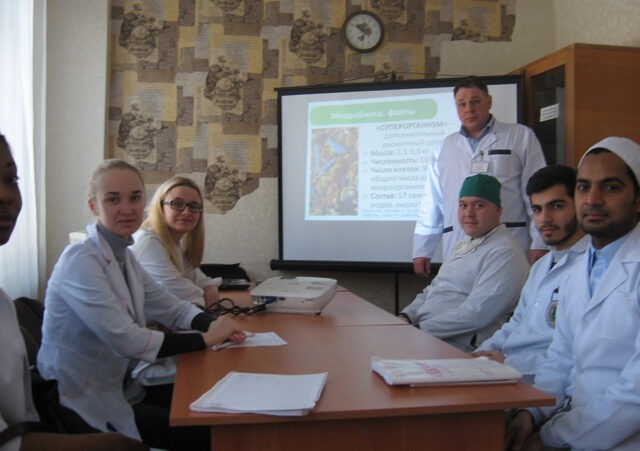
The department trains interns in the specialty “Infectious Diseases” and other related specialties (“General Practice-Family Medicine”, “Internal Medicine”, “Dentistry”, “Dermatovenereology”, “Surgery”, “Ophthalmology”, Emergency Medicine”, “Paediatrics”).
The department also conducts advanced training for doctors: cycles of thematic improvement “Current issues of diagnosis, treatment and prevention of infectious diseases” for infectious disease doctors, therapists, general practitioners-family medicine doctors, anaesthesiologists and “Modern approaches to diagnosis, treatment and prevention of viral hepatitis” for infectious disease doctors, therapists, general practitioners-family medicine doctors, obstetricians-gynaecologists, surgeons, phthisiologists.
Head of SSS: Candidate of Medical Sciences, Associate Professor Mogilenets O.I.
SNT members: higher education students of 4-6 years of medical faculties, the composition is updated annually.
Format of the event: monthly meetings in a remote format (Zoom, Google Meet), individual work – independently and under the supervision of a teacher-curator. The results of the work are presented at student scientific conferences at the department, interdepartmental, university and international.
The best SSS members are selected to participate in the Infectious Diseases Olympiad and other professionally oriented competitions.

